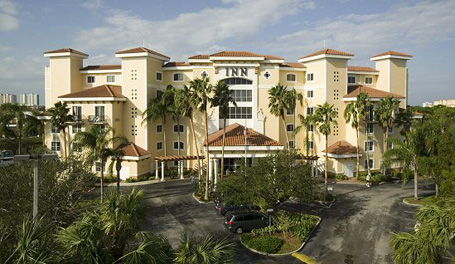
Condo Hotel Center: Many people dream of owning a vacation home. But often concerns about maintaining it, renting it out in the off-season, or even justifying the expense when it’s only to be used for a couple weeks of the year keep people from making the dream a reality.
Now comes along condo hotels, a new type of vacation home ownership that provides solutions to all these problems. Condo hotels enable you to own a luxury vacation home at a world-class resort and receive rent revenue whenever you’re not using it.
So how do condo hotels differ from owning a traditional vacation apartment or condominium? First of all, these are not your typical second homes. They are beautifully furnished condominium suites in some of the most prestigious hotels and resorts around the country. The properties often feature four- or five-star amenities ranging from full-service spas and fitness centers to concierge services, business centers and fine-dining restaurants.
Condo hotels are operated by big-brand management companies such as Hyatt, Ritz-Carlton, Sonesta, Starwood, Hilton, Trump and Rosewood. Typically they are high-rise luxury hotels located on prime land overlooking the ocean or a golf course, near popular theme parks or attractions, or in the heart of a booming downtown. Prices for condo hotel units range from $250,000 to over $1 million for top properties.
 Here’s what makes the condo hotel concept so appealing. When you’re not using your condo hotel unit, you have the option of placing it into the hotel’s rental program. You receive 40%-60% of the revenue your unit generates (it varies by property), with the balance going to the hotel operator. While the hotel operator doesn’t guarantee the rental of the unit, by capitalizing on the hotel’s brand name, big league advertising, national affiliations, centralized reservation system and management expertise, unit owners typically receive a higher level of rental income than they would from a traditional vacation home. More importantly, ownership is 100 percent hassle-free, as the hotel operator takes care of renting and maintaining the unit as well as managing the property’s many amenities.
Here’s what makes the condo hotel concept so appealing. When you’re not using your condo hotel unit, you have the option of placing it into the hotel’s rental program. You receive 40%-60% of the revenue your unit generates (it varies by property), with the balance going to the hotel operator. While the hotel operator doesn’t guarantee the rental of the unit, by capitalizing on the hotel’s brand name, big league advertising, national affiliations, centralized reservation system and management expertise, unit owners typically receive a higher level of rental income than they would from a traditional vacation home. More importantly, ownership is 100 percent hassle-free, as the hotel operator takes care of renting and maintaining the unit as well as managing the property’s many amenities.
How are the ownership expenses split? As part of the rental agreement, the hotel pays for most operating expenses such as housekeeping, administrative and marketing. The condo hotel owner typically pays for real estate taxes, insurance and capital improvements. The rental revenue that owners receive helps defray these expenses and, in some cases, provides additional income.
While developers primarily sell their condo hotel units as a lifestyle and vacation home alternative, many buyers see merit in the condo hotel concept as an investment tool. They say it gives them the best of both worlds. They can enjoy all of the amenities of vacationing in a first-class resort while having ownership of a real estate investment that has potential to appreciate.
Condo Hotel Center – http://www.CondoHotelCenter.com
Vacation Homes
(Visited 19 times, 1 visits today)
A survey by the National Association of Realtors estimates there are as many as 7 million vacation homes in the United States alone with an occupancy rate averaging 8 weeks per year. NAR’s chief economist, David Lereah states the primary motivation for second-home buying is recreation and location with ocean, river, lake, mountain, and other natural attractions topping the list.
With such a large number of vacation homes vacant close to 44 weeks per year, it’s no surprise that these savvy homeowners are looking toward vacation home exchange to leverage their desirable asset to travel more than ever before. Secondary/vacation home listings have increased every year and are now 20% of the digsville.com home listing database. A vacation homeowner has a lot more flexibility in arranging travel dates since the exchange can be non-simultaneous. Additionally, since these homes tend to be located in recreational areas, they are highly desired by other exchangers providing them many options when planning their next vacation exchange.